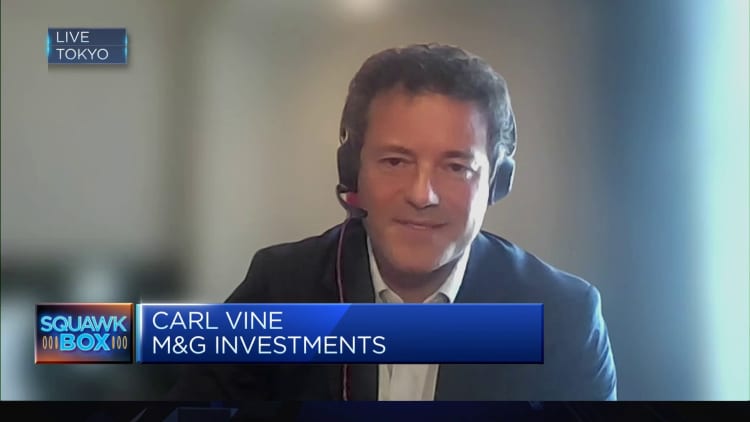Bank of Japan leaves rates unchanged, holding them at ultra low levels
Bank of Japan Governor Kazuo Ueda arrives to conduct an interview with a small group of journalists in Tokyo on May 25, 2023.
Richard A. Brooks | AFP | Getty Images
Japan’s central bank maintained its ultra loose monetary policy on Friday, electing to support fragile economic growth at a time of swirling global uncertainty.
The Bank of Japan held its short-term interest rate target at -0.1%, in line with economists’ expectations, and made no changes to its yield curve control policy after a two-day meeting.
The Japanese yen declined after the decision, falling by as much as 0.3% to around 140.70 per U.S. dollar before paring losses. The Nikkei 225 similarly reversed earlier losses to creep higher, while 10-year Japanese government bond yields fell.
“With extremely high uncertainties surrounding economies and financial markets at home and abroad, the Bank will patiently continue with monetary easing while nimbly responding to developments in economic activity and prices as well as financial conditions,” the Bank of Japan said in its policy statement.
Outlook for growth and inflation
The Bank of Japan expects the world’s third-largest economy to “recover moderately around the middle of fiscal 2023” due to pent-up demand. It cautioned, however, commodity prices and a growth slowdown overseas will likely limit growth.

“The pace of growth is highly likely to decelerate gradually,” the Bank of Japan said. “The year-on-year rate of increase in the CPI (all items less fresh food) is likely to decelerate toward the middle of fiscal 2023, with a waning of the effects of the pass-through to consumer prices of cost increases led by the rise in import prices.”
Governor Kazuo Ueda is under pressure with inflation well above the BOJ’s 2% target. Wage inflation is also expected to increase after workers received the biggest pay raise in 25 years following March negotiations with top Japanese companies.
“Despite upside surprises on the growth and inflation fronts, we believe the BoJ will maintain the status quo for another year or so to assess whether the economy is on track to achieving 2% inflation within Governor Ueda’s five-year term,” Shigeto Nagai, head of Japan economics at Oxford Economics, wrote in a note.
“In his first speech as Governor, Ueda stressed the risk management approach in policymaking and the high cost of premature tightening,” Nagai added.
The Bank of Japan’s short-term interest rate target has been held at -0.1% since it first adopted negative rates in 2016 to fight chronic deflation that has plagued the Japanese economy for decades and jumpstart economic growth. It is keeping current policy to cope with growth it still sees as fragile.

For all the latest World News Click Here
For the latest news and updates, follow us on Google News.

